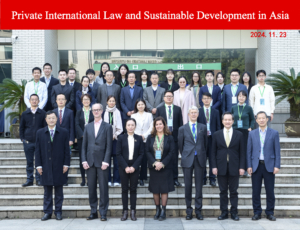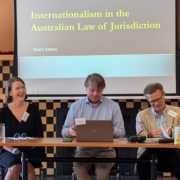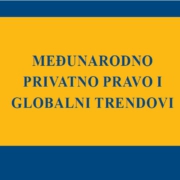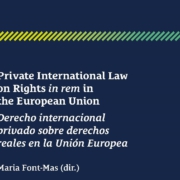Private International Law and Sustainable Development in Asia at Wuhan University – Report
By Zixuan Yang, a PhD student at Max Planck Institute for Comparative and International Private Law in Hamburg, Germany.
The Conference on Private International Law and Sustainable Development in Asia was successfully held at Wuhan University School of Law on 23rd November 2024. This international symposium was organized by Wuhan University Academy of International Law and Global Governance, Wuhan University School of Law and China Society of Private International Law. Following a Call for Papers of the Chinese Journal of Transnational Law (CJTL), the symposium provided an ideal platform for participants to critically and constructively engage with the functions, methodologies and techniques of private international law in relation to sustainable development from the Asian perspective. Distinguished legal experts and scholars from Japan, India, Vietnam, Singapore, Hong Kong SAR, Macao SAR, Taiwan, Mainland China, Germany and the Netherlands delivered presentations and participated in discussions on-site and online.

After Professor Zheng Tang opened the conference, vice President of the China Law Society, President of the China Society of International Law and President of the China Society of Private International Law, offered a welcome. This was followed by a joint keynote speech from Professor Ralf Michaels (Max Planck Institute for Comparative and International Private Law, Hamburg), Professor Verónica Ruiz Abou-Nigm (University of Edinburgh), and Hans van Loon (former Secretary-General of the Hague Conference on Private International Law) on Private International Law and SDGs 2030. Together with Zheng Tang, they will serve as special editors of an issue in CJTL that brings the papers together. Read more


 This open access book offers readers a better understanding of the legal situation of children and families migrating to the EU. Shedding light on the legal, practical, and political difficulties at the intersection of international family law and migration law, it demonstrates that enhanced coordination between these policy areas is crucial to improving the legal situation of families on the move. It not only raises awareness of these “interface” issues and the need for stakeholders in migration law and international family law to collaborate closely, but also identifies deficits in the statutory framework and suggests possible remedies in the form of interpretation and regulatory measures.
This open access book offers readers a better understanding of the legal situation of children and families migrating to the EU. Shedding light on the legal, practical, and political difficulties at the intersection of international family law and migration law, it demonstrates that enhanced coordination between these policy areas is crucial to improving the legal situation of families on the move. It not only raises awareness of these “interface” issues and the need for stakeholders in migration law and international family law to collaborate closely, but also identifies deficits in the statutory framework and suggests possible remedies in the form of interpretation and regulatory measures.

